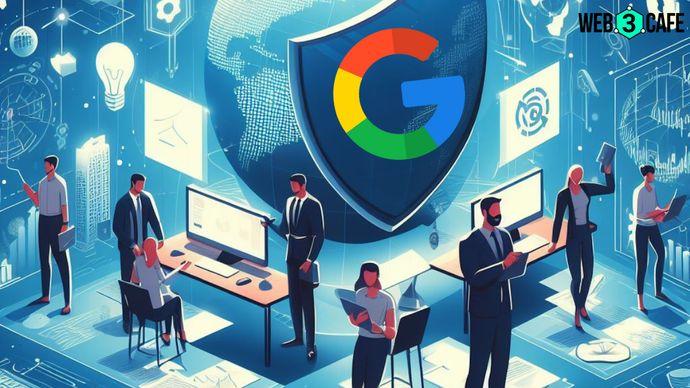Google to shoulder lawsuit responsibility for AI-generated content by users
Google offers legal protection to AI content creators in copyright disputes, relieving user concerns.

Highlights
- Google offers legal protection to AI content creators against copyright disputes
- Coverage spans various AI products to reassure users
- Google's proactive stance reflects the industry's evolving legal challenges
In a significant move to address mounting concerns surrounding copyright infringement in the realm of AI-generated content, Google has declared its commitment to safeguarding customers who use its generative AI products.
This announcement comes after growing apprehensions that AI-generated content may inadvertently breach copyright regulations. Google's pledge, outlined in a blog post, specifies that it will offer legal protection to customers utilising products now integrated with generative AI features.
If you are challenged on copyright grounds, we will assume responsibility for the potential legal risks involved.
Google's protective umbrella
The tech giant explicitly identified seven products under its legal cover. These encompass Duet AI in Workspace, which includes text generated in Google Docs and Gmail, as well as images in Google Slides and Google Meet.
Additionally, Duet AI in Google Cloud, Vertex AI Search, Vertex AI Conversation, Vertex AI Text Embedding API, Visual Captioning on Vertex AI, and Codey APIs are included within the protective purview.
Notably, Google's Bard search tool should have been mentioned in the announcement.
Google assured its customers that, in the event they face copyright challenges, the company will assume responsibility for the potential legal risks involved. This marks a substantial step towards alleviating concerns among users who create content using generative AI tools.
A Two-Pronged approach to intellectual property indemnification
Google revealed a pioneering ‘two-pronged, industry-first approach’ to intellectual property indemnification. The company commits to covering its training data and the results generated from its foundation models.
This means that if a lawsuit arises due to the use of Google's training data, particularly if it contains copyrighted material, Google will bear the legal burden.
The indemnity surrounding training data, Google clarified, is not a new protection. However, the company acknowledged that customers sought explicit clarification that this protection extends to situations where the training data incorporates copyrighted information.
Moreover, Google will also shield users if they face legal action due to content generated with its foundation models. For instance, if content closely resembles a published work, Google will offer legal protection.
However, this safeguard applies only when the user did not intentionally create or use generated content to infringe upon the rights of others.
A growing trend
Google is not the only tech giant making such proclamations. Microsoft has similarly declared its commitment to take legal responsibility for enterprise users of its Copilot products, while Adobe has offered protection to enterprise customers using Firefly concerning copyright, privacy, and publicity rights claims.
The issue of copyright has increasingly haunted generative AI platforms, leading to a surge in lawsuits filed against various companies for alleged copyright infringement.
Notably, some of the most recent lawsuits involve renowned authors such as George R.R. Martin, John Grisham, and Jodi Picoult.
This development comes in the backdrop of Google facing a proposed class action lawsuit for allegedly utilising personal information and copyrighted data to train its AI models, as reported by Reuters.
Google's proactive approach to protecting its users in copyright disputes is a significant step in addressing the evolving legal landscape surrounding AI-generated content.
It also underscores the industry's growing recognition of the need for proactive measures to mitigate copyright-related challenges.
